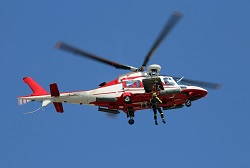Ground-based observations monitor Earth's atmosphere
Copernicus, previously known as Global Monitoring for Environment and Security (GMES), is the European Earth observation programme. It provides environmental data to help scientists understand how our planet and its atmosphere are changing to define the role of human activities in these changes. The EU-funded project NORS(opens in new window) (Demonstration network of ground-based remote sensing observations in support of the GMES Atmospheric Service) aimed to provide support to Copernicus AMS. In AMS, state-of-the-art atmospheric modelling is combined with Earth observation data to provide information on atmosphere composition and air quality over Europe. As part of the NORS project, remote sensing data for key species like nitrogen dioxide for the stratospheric ozone, air quality and climate were obtained from the international Network for the Detection of Atmospheric Composition Change (NDACC). These NDACC data products were tailored to the needs of Copernicus AMS. Research work included a full characterisation of the NDACC data products and a detailed evaluation of their consistency with data assimilated in the Copernicus AMS. The development of a web-based server for comparisons between Copernicus AMS data products and NORS reference data was a difficult and time-consuming task. After defining user requirements, researchers outlined the design of the server. Finally, all algorithms required to build the data validation chain were generically defined for all data products and according to community best practices. Currently, a prototype of the server is operating based on data from four pilot NDACC stations. The NORS project has laid the groundwork to get the entire NDACC network involved and widen the variety of target species. By enhancing the quality of Copernicus AMS data projects, the new system will improve the visibility of ground-based remote sensing NDACC data while improving our understanding of how the Earth's atmosphere evolves.







